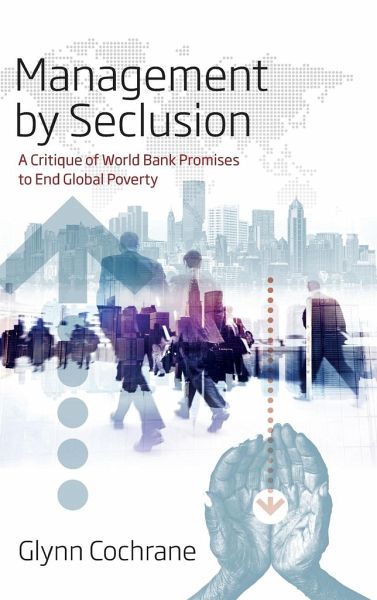
Management by Seclusion
A Critique of World Bank Promises to End Global Poverty
Versandkostenfrei!
Versandfertig in 1-2 Wochen
116,99 €
inkl. MwSt.
Weitere Ausgaben:

PAYBACK Punkte
58 °P sammeln!
50 years ago, World Bank President Robert McNamara promised to end poverty. Alleviation was to rely on economic growth, resulting in higher incomes stimulated by Bank loans processed by deskbound Washington staff, trickling down to the poorest. Instead, child poverty and homelessness are on the increase everywhere. In this book, anthropologist and former World Bank Advisor Glynn Cochrane argues that instead of Washington's "management by seclusion," poverty alleviation requires personal engagement with the poorest by helpers with hands-on local and cultural skills. Here, the author argues, the...
50 years ago, World Bank President Robert McNamara promised to end poverty. Alleviation was to rely on economic growth, resulting in higher incomes stimulated by Bank loans processed by deskbound Washington staff, trickling down to the poorest. Instead, child poverty and homelessness are on the increase everywhere. In this book, anthropologist and former World Bank Advisor Glynn Cochrane argues that instead of Washington's "management by seclusion," poverty alleviation requires personal engagement with the poorest by helpers with hands-on local and cultural skills. Here, the author argues, the insights provided by anthropological fieldwork have a crucial role to play.













